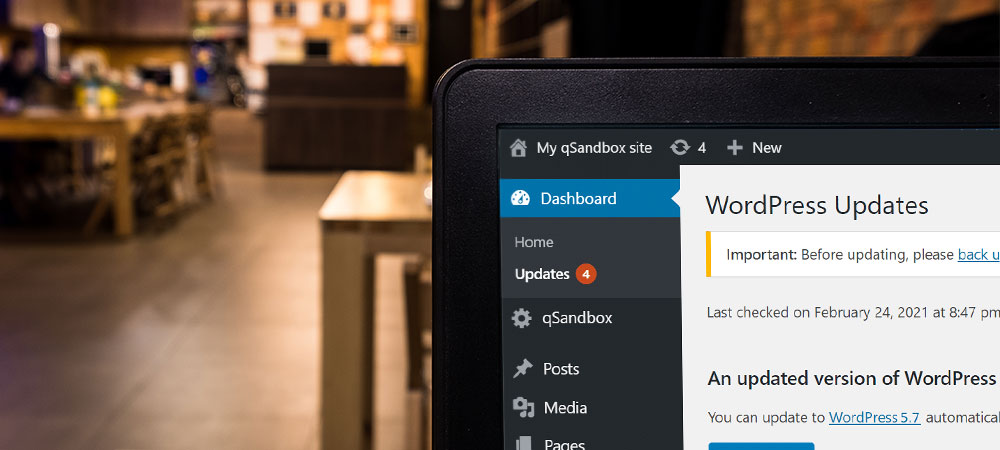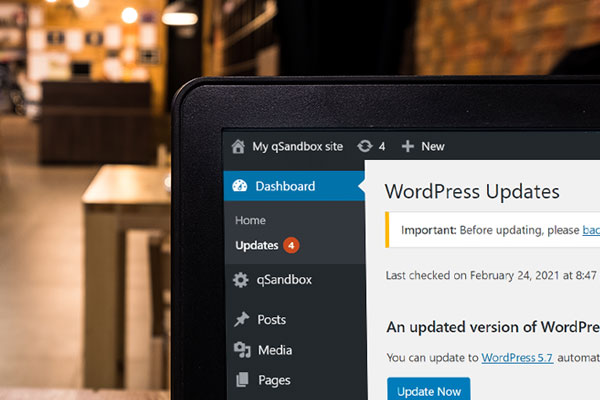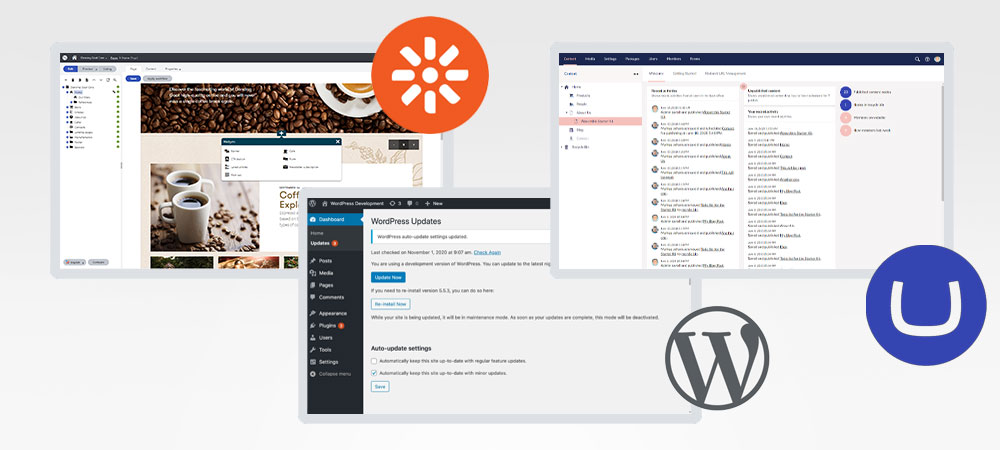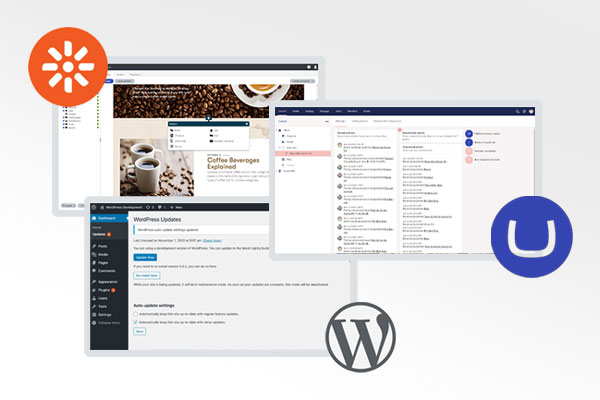WordPress, currently sharing around 60% of the CMS market, is the world's most popular content management system. And that is no surprise. It is easy to set up, convenient to work with, and most importantly - free. But if you want to take that whole digital transformation thing seriously - as much as we don't want to use another movie cliche - you will need a bigger boat. So, let's compare WordPress to the two popular digital experience platforms we work with - Kentico and Umbraco.
Let there be no misunderstandings - this is not going to be some WordPress slander. We respect the system for its usability. Back in the day, before we as a company decided to focus on custom .NET development, we designed and developed our fair share of WordPress landing pages and online shops, many of which work just fine to this day. But when it comes to choosing the right content management system for your business, you might want to consider things other than popularity and usability. Things like stability, scalability, integration ability, and, most importantly, safety. What works perfectly for a local restaurant might not work for an international chain of restaurants with a complex online ordering system. You get it. According to W3Techs, WordPress powers up to 40% of the web, though only around 15% of the world's top websites. And that's for a good reason.
So many plugins!
As you may know, WordPress started as a humble blogging platform twenty years ago, an alternative to LiveJournal and Blogger. People in their thirties and forties can shed a tear today at the mention of these names. And at its core, in a way, WordPress still is like a blogging platform aimed at smaller editors, restricting web developers from building bespoke solutions. Of course, you can do much more with it than just blog, but you will need third-party plugins.
You will need a plugin if you want to sell your products online through a WordPress page. Most likely, WooCommerce, which has its limitations. Most WooCommerce extensions require subscriptions, so your free CMS will suddenly cease to be free. And what if you like to spice up your website with a view from your Instagram feed? Plugin needed. Contact forms? Plugin. SEO features? We think you know where this is going.
On the other hand, Kentico, as a digital experience platform, offers a robust set of built-in features, including a visual form builder or email marketing modules, which you can read about in our earlier articles. Umbraco is also highly customizable and flexible.
Sure, building a highly functional website on WordPress with various plugins is certainly possible. In the end, it may also be much less expensive than subscribing to a feature-rich digital experience platform or paying for hours of web developers' work on a custom CMS. But when it comes to online business, you can't really put a price tag on...
Security
All WordPress site administrators know that after logging into the dashboard, the system will probably greet them with a couple of notifications about pending updates. Not only WordPress needs to be updated regularly, but every single plugin we use has to be updated individually too. Those plugins have access to the website, so everyone able to breach them will as well. Your page security will have to rely not only on your vigilance but also on whether plugin developers provide any updates at all. One underdeveloped patch may put you at risk of all kinds of malware.
Not to mention, WordPress's popularity will be an additional burden here. Popularity makes the system a much more attractive target for hackers and spammers, and security plugins might not be enough to keep the site safe.
Meanwhile, both Kentico and Umbraco have a tight grip on security. Extensions for those platforms are coded, not simply "plugged" into a system, and regular system penetration tests ensure solid protection against cyber attacks.
Summary
Security and scalability are the main things to consider while choosing the content management system for your business, and these aren't WordPress's strong suit. There are also other factors. For example, all the third-party plugins, oversaturated databases, and frequent updates will undoubtedly affect your site's speed.
One thing is for sure, WordPress and systems like Umbraco and Kentico are aimed at different demographics. WP is well known for its usability and user-friendliness. Setting up a WordPress page requires almost no web dev knowledge, which makes it an excellent choice for bloggers, small businesses, and marketers. In contrast, both Kentico and Umbraco require a wealth of technical knowledge, skills, and time, but all that involvement results in a high level of website security and peace of mind.
Check our earlier article in which we compare Kentico and Umbraco in terms of the different business needs of website owners.



 Let there be no misunderstandings - this is not going to be some WordPress slander. We respect the system for its usability. Back in the day, before we as a company decided to focus on custom .NET development, we designed and developed our fair share of WordPress landing pages and online shops, many of which work just fine to this day. But when it comes to choosing the right content management system for your business, you might want to consider things other than popularity and usability. Things like stability, scalability, integration ability, and, most importantly, safety. What works perfectly for a local restaurant might not work for an international chain of restaurants with a complex online ordering system. You get it. According to W3Techs, WordPress powers up to 40% of the web, though only around 15% of the world's top websites. And that's for a good reason.
Let there be no misunderstandings - this is not going to be some WordPress slander. We respect the system for its usability. Back in the day, before we as a company decided to focus on custom .NET development, we designed and developed our fair share of WordPress landing pages and online shops, many of which work just fine to this day. But when it comes to choosing the right content management system for your business, you might want to consider things other than popularity and usability. Things like stability, scalability, integration ability, and, most importantly, safety. What works perfectly for a local restaurant might not work for an international chain of restaurants with a complex online ordering system. You get it. According to W3Techs, WordPress powers up to 40% of the web, though only around 15% of the world's top websites. And that's for a good reason.
 Not to mention, WordPress's popularity will be an additional burden here. Popularity makes the system a much more attractive target for hackers and spammers, and security plugins might not be enough to keep the site safe.
Not to mention, WordPress's popularity will be an additional burden here. Popularity makes the system a much more attractive target for hackers and spammers, and security plugins might not be enough to keep the site safe.